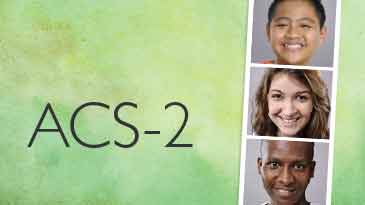 Adolescent Coping Scale – Second Edition (ACS-2)
Adolescent Coping Scale – Second Edition (ACS-2)
An important research, clinical and educational instrument designed to support young people.
The Adolescent Coping Scale – Second Edition (ACS-2) is an important research, clinical and educational instrument designed to support young people when examining their own coping behaviour. Updated to measure the usage and helpfulness of coping strategies in general and specific situations, it reliably assesses 20 distinct coping strategies.
 Autism Detection in Early Childhood (ADEC)
Autism Detection in Early Childhood (ADEC)
To screen for autistic tendencies in young children.
Autism Detection in Early Childhood (ADEC) is an extremely effective, validated screening tool for identifying autism and autistic tendencies in children as young as 12 months. Until now, autism has typically gone undiagnosed in younger children due to a lack of awareness of the behaviours that can indicate autism in preverbal children. ADEC clearly identifies and details these behaviours. Those at risk can be screened and referred for a more formal diagnosis, enabling much-needed support at an early stage of development - an important contributor to successful intervention.
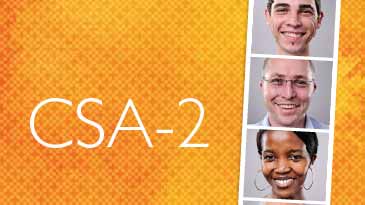 Coping Scale for Adults - Second edition
Coping Scale for Adults - Second edition
To assess the usage and helpfulness of a range of general and specific coping strategies.
The Coping Scale for Adults – Second Edition (CSA-2) is an important research, clinical and educational instrument designed to support people when examining their own coping behaviour. Updated to measure the usage and helpfulness of coping strategies in general and specific situations, it reliably assesses 20 distinct coping strategies.
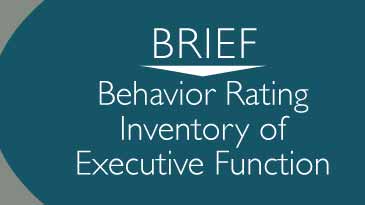 Behavior Rating Inventory of Executive Function (BRIEF)
Behavior Rating Inventory of Executive Function (BRIEF)
To assess the impairment of executive function.
The Behaviour Rating Inventory of Executive Function (BRIEF) consists of two rating forms — a parent questionnaire and a teacher questionnaire — designed to assess executive functioning in the home and school environments. The BRIEF is useful in evaluating children with a wide spectrum of developmental and acquired neurological conditions.
 Westmead Feelings Program 1
Westmead Feelings Program 1
Westmead Feelings Program 1 (WFP 1) is an evidence-based clinical intervention package developed by The Children's Hospital at Westmead.
Westmead Feelings Program 1 (WFP 1) is an evidence-based clinical intervention package developed by The Children's Hospital at Westmead, designed specifically to teach emotional and social skills to children with autism spectrum disorder and mild intellectual disability. Westmead Feelings Program 1 is aimed at verbal children, who may or may not read, can draw simple pictures or write a few key words and can pay attention for at least a few minutes at a time.
 Westmead Feelings Program 2
Westmead Feelings Program 2
Developed by the Children’s Hospital at Westmead, Westmead Feelings Program 2 (WFP 2) is designed specifically to teach emotional and social skills to children with autism spectrum disorder.
Westmead Feelings Program 2 (WFP 2) is an evidence-based clinical intervention package, developed by the Children’s Hospital at Westmead, designed specifically to teach emotional and social skills to children with autism spectrum disorder. Westmead Feelings Program 2 is aimed at children who have fluent speech, and who are able to read and write.
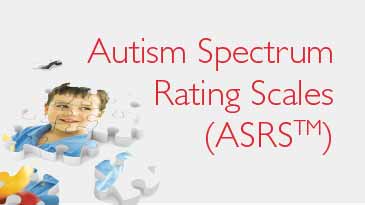 Autism Spectrum Rating Scales (ASRS)
Autism Spectrum Rating Scales (ASRS)
To identify symptoms, behaviours and associated features of Autism Spectrum Disorders.
This innovative instrument, authored by the highly respected Sam Goldstein, Ph.D., and Jack A. Naglieri, Ph.D., is a norm-referenced assessment based on a large nationally representative sample, designed to identify symptoms, behaviours, and associated features of the full range of Autism Spectrum Disorders. This tool aids in differential diagnosis among the disorders that make up the Autism Spectrum.
 Rey Complex Figure Test And Recognition Trial (RCFT)
Rey Complex Figure Test And Recognition Trial (RCFT)
To measure visuospatial ability and visuospatial memory
The RCFT measures 5 domains of neuropsychological functioning: visuospatial recall memory, visuospatial recognition memory, response bias, processing speed, and visuospatial constructional ability.The stimulus figure used in the RCFT is a digital rendition of Rey's original complex figure.
 Modified Wisconsin Card Sorting Test (M-WCST)
Modified Wisconsin Card Sorting Test (M-WCST)
Quickly assess perseveration and abstract reasoning.
The Modified Wisconsin Card Sorting Test (M-WCST) is a modification of the original Wisconsin Card Sorting Test that eliminates all cards from the original 128-card deck that share more than one attribute with a stimulus card. This results in a 48-card deck, which is used along with four stimulus cards. This and other modifications enable impaired and elderly adults to more easily understand the directions, reducing frustration. Age, sex and education based norms are provided in the manual.
 Dementia Rating Scale–2™ (DRS-2™)
Dementia Rating Scale–2™ (DRS-2™)
To measure cognitive functioning in adults with cognitive impairment.
The DRS-2™ is a widely used, brief, comprehensive neuropsychological measure of cognitive status for adults with cortical impairment, particularly of the degenerative type.
The DRS-2™ measures cognitive functioning at lower ability levels and can also be used to track changes in cognitive status over time.The DRS-2 measures deficits in a large range of higher cortical functions and differentiates deficits of varying severity levels.
 Neuropsychological Assessment Battery (NAB)
Neuropsychological Assessment Battery (NAB)
To evaluate neuropsychological functioning.
The Neuropsychological Assessment Battery (NAB) is a comprehensive, integrated, modular battery of 33 new neuropsychological tests developed to assess a wide array of neuropsychological skills and functions in adults who have known or suspected central nervous system disorders.
 Structured Inventory of Malingered Symptomatology™ (SIMS™)
Structured Inventory of Malingered Symptomatology™ (SIMS™)
Screening measure for malingered psychopathology and cognitive symptoms.
The SIMS is a 75-item, true/false screening instrument that assesses for both malingered psychopathology and neuropsychological symptoms. The instrument reduces clinician burden and increases assessment efficiency by serving as a screen for malingering and by reducing hands-on administration time. In addition to serving as a screening measure, the SIMS can be used as part of a battery of tests providing convergent evidence of malingering, rather than relying on a single instrument for diagnosis.
 Hare Psychopathy Checklist – Revised Second Edition (PCL–R)
Hare Psychopathy Checklist – Revised Second Edition (PCL–R)
The leading assessment of Psychopathic Personality Disorders in adult forensic populations.
The PCL–R 2nd Edition is highly reliable and has impressive concurrent, predictive, and construct validity. Ratings are made using a semistructured interview and a review of collateral information. Scoring is based on the degree to which a person’s personality and behaviour matches the Rating Booklet items. The manual provides item descriptions, scoring procedures, extensive reliability and validity information, and normative data
 Paulhus Deception Scales™ (PDS™) Online
Paulhus Deception Scales™ (PDS™) Online
Identifies individuals who distort their responses.
The Paulhus Deception Scales™ (PDS™) is a 40-item instrument that is able to identify individuals who distort their responses. It is designed to be administered concurrently with other instruments. Items are phrased in contemporary, gender-neutral language.
 Reynolds Intellectual Assessment Scales (RIAS)
Reynolds Intellectual Assessment Scales (RIAS)
To measure intelligence and memory.
The RIAS is a test of verbal and nonverbal intelligence, including a conormed, supplemental measure of memory. The RIAS provides a thorough assessment of the client’s current level of intellectual functioning and also allows the examiner to evaluate the relationship between the client’s memory and cognitive skills.
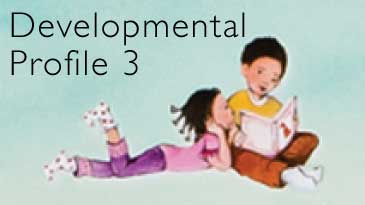 Developmental Profile 3
Developmental Profile 3
Allows you to quickly screen a child for developmental delays in five key areas.
Designed to evaluate children from birth through age 12 years, 11 months, the DP-3 includes 180 items, each describing a particular skill. The respondent simply indicates whether or not the child has mastered the skill in question.
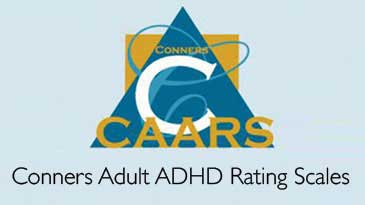 Conners Adult ADHD Rating Scales (CAARS)
Conners Adult ADHD Rating Scales (CAARS)
Measures the presence and severity of ADHD symptoms.
The CAARS scales provide a multiple-informant assessment with self-report (CAARS–S) and observer ratings (CAARS–O). Both ratings address the same behaviors and contain identical scales, subscales, and indexes. Long, short, and screening versions are available for each.
 Universal Nonverbal Intelligence Test-Second Edition - UNIT 2
Universal Nonverbal Intelligence Test-Second Edition - UNIT 2
To measure general intelligence/cognitive ability.
The UNIT2 is designed to provide a fair assessment of intelligence for individuals who have speech, language, or hearing impairments; have different cultural or language backgrounds; or are verbally uncommunicative.
 Trauma Symptom Checklist For Children - TSCC & TSCC-A (TSCC)
Trauma Symptom Checklist For Children - TSCC & TSCC-A (TSCC)
Evaluates acute and chronic post traumatic symptomatology.
The TSCC is a self-report measure of post traumatic stress and related psychological symptomatology in children ages 8-16 years who have experienced traumatic events (e.g., physical or sexual abuse, major loss, natural disaster, or witness violence). The 54-item TSCC includes two validity scales (Underresponse and Hyperresponse), six clinical scales (Anxiety, Depression, Anger, Posttraumatic Stress, Dissociation, and Sexual Concerns) and eight critical items.
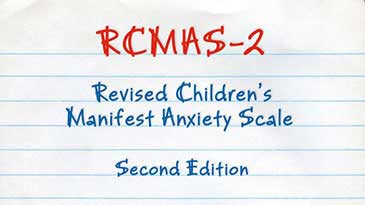 Revised Children’s Manifest Anxiety Scale – Second Edition (RCMAS–2)
Revised Children’s Manifest Anxiety Scale – Second Edition (RCMAS–2)
Measures the level and nature of anxiety, as experienced by children today, using a simple yes-or-no response format.
Widely used by school psychologists, clinicians, and researchers, the Revised Children's Manifest Anxiety Scale is now available in an updated Second Edition. The new RCMAS-2 retains all the features that made previous versions of the test so popular—brevity, a simple yes/no response format, an elementary reading level, and content-based item clusters that help pinpoint children's problems and focus intervention. At the same time, it adds a convenient Short Form, updated and ethnically diverse norms, and new items that reflect changes in the way children now experience anxiety.
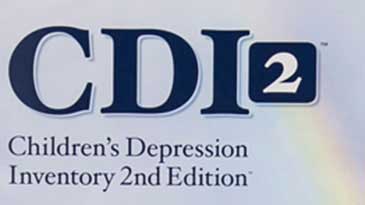 Children’s Depression Inventory - Second Edition (CDI-2)
Children’s Depression Inventory - Second Edition (CDI-2)
Assessment of depressive symptoms in youth.
The Children’s Depression Inventory - Second Edition (CDI-2) is a comprehensive multi-rater assessment of depressive symptoms in youth aged 7 to 17 years. Depressive symptomatology is quantified by the CDI 2 based on reports from children/adolescents, teachers and parents. Developed based on the Original CDI, the CDI-2 retains many of the essential features of its predecessor and introduces a number of important refinements.
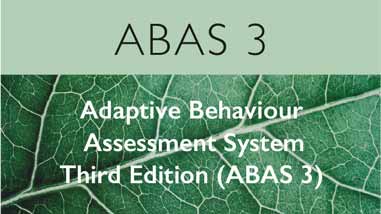 Adaptive Behaviour Assessment System - Third Edition (ABAS-3)
Adaptive Behaviour Assessment System - Third Edition (ABAS-3)
Provides a complete assessment of adaptive skills across the life span.
Retaining all of the essential features that made the second edition the preferred instrument for assessing adaptive behaviour, the ABAS-3 is even easier to administer and score. It is particularly useful for evaluating those with developmental delays, autism spectrum disorder, intellectual disability, learning disabilities, neuropsychological disorders, and sensory or physical impairments.
 Child Behaviour Checklist & Related Materials (CBCL)
Child Behaviour Checklist & Related Materials (CBCL)
A comprehensive evidence-based assessment system developed through decades of research and practical experience.
The ASEBA Child Behaviour Checklist (CBCL) is a comprehensive evidence-based assessment system developed through decades of research and practical experience. The ASEBA assesses competencies, strengths, adaptive functioning, and behavioural, emotional, and social problems from age 1½ to over 90 years.
 PDD Behavior Inventory™ (PDDBI™)
PDD Behavior Inventory™ (PDDBI™)
Assess responsiveness to intervention in children with a pervasive developmental disorder in ages 1.6-12.5 years.
The PDDBI is an informant-based rating scale that is designed to assist in the assessment of children from the age of 1 year 6 months to 12 years 5 months who have been diagnosed with a pervasive developmental disorder (PDD) as defined by the DSM-IV™. PDDBI was developed to assess both problem behaviours as well as appropriate social, language, and learning/memory skills. It was also designed to provide age-standardised scores for both parent and teacher ratings.
 Social Communication Questionnaire (SCQ)
Social Communication Questionnaire (SCQ)
This brief instrument helps evaluate communication skills and social functioning in children.
Previously known as the Autism Screening Questionnaire (ASQ), this brief instrument helps evaluate communication skills and social functioning in children who may have autism or autism spectrum disorders. Completed by a parent or other primary caregiver in less than 10 minutes, the SCQ is a cost-effective way to determine whether an individual should be referred for a complete diagnostic evaluation.
 Social Responsiveness Scale - Second Edition (SRS-2)
Social Responsiveness Scale - Second Edition (SRS-2)
Measures the severity of autism spectrum symptoms in natural social settings.
The Social Responsiveness Scale - Second Edition (SRS-2) is a highly regarded autism assessment that offers the convenience of a screener and the power of a diagnostic tool. The SRS-2 identifies social impairment associated with autism spectrum disorders (ASDs) and quantifies the severity. It's sensitive enough to detect subtle symptoms, yet specific enough to differentiate clinical groups, both within the autism spectrum and between ASD and other disorders. With an expanded age range, the SRS-2 can be used to monitor symptoms throughout the lifespan.
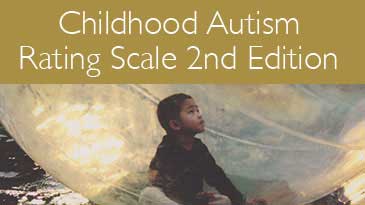 Childhood Autism Rating Scale – Second Edition – CARS–2
Childhood Autism Rating Scale – Second Edition – CARS–2
To identify and classify children with autism.
The revised Second Edition expands the test’s clinical value, making it more responsive to individuals on the “high functioning” end of the autism spectrum—those with average or higher IQ scores, better verbal skills, and more subtle social and behavioral deficits. While retaining the simplicity, brevity, and clarity of the original test, the CARS2 adds forms and features that help you integrate diagnostic information, determine functional capabilities, provide feedback to parents, and design targeted intervention.
 Five-Factor Personality Inventory – Children (FFPI-C)
Five-Factor Personality Inventory – Children (FFPI-C)
This test is based upon the Five Factor Model (previously known as Big Five Theory of Personality)
This is a standardized, norm-referenced self-report inventory designed assessment to measure personality traits and dispositions in children and adolescents, as well as adults. It was normed on a representative sample of 1,284 individuals, ranging in age from 9 years 0 months and 18 years 11 months, residing in 16 different states. It is based on a modern five-factor personality theory, which concludes that five broad factors account for the majority of variance in the personality descriptors.
 Personality Assessment Screener (PAS)
Personality Assessment Screener (PAS)
The PAS can be used to initially evaluate a client by health care and mental health professionals.
The PAS can be used to initially evaluate a client by health care and mental health professionals to determine the need for a follow-up with a full evaluation of psychopathology, focus the initial client interview on specific problem areas, and target certain clinical areas for follow-up testing.
 The NEO™ Inventories: NEO™ Personality Inventory-3 (NEO™-PI-3)
The NEO™ Inventories: NEO™ Personality Inventory-3 (NEO™-PI-3)
Obtain a detailed assessment of general personality in adolescents and adults
The NEO-PI-3 is a revision of the Revised NEO Personality Inventory (NEO PI-R™), the standard questionnaire of the FFM. It is a concise measure of the five major domains of personality (Neuroticism, Extraversion, Openness, Agreeableness, and Conscientiousness) and the six facets that define each domain. Taken together, the five domain scales and the 30 facet scales facilitate a comprehensive and detailed assessment of general personality.
 Stanford-Binet Intelligence Scales (SB5)
Stanford-Binet Intelligence Scales (SB5)
To measure intelligence / cognitive ability.
The SB5 comprehensively covers five factors of cognitive ability in both nonverbal and verbal domains – Fluid Reasoning, Knowledge, Quantitative Reasoning, Visual-Spatial Processing, and Working Memory. The nonverbal subtests require minimal receptive language and mostly nonverbal responses (pointing, moving pieces, etc). The verbal subtests require facility with words and printed material (reading or speaking).
 PAI - Personality Assessment Inventory
PAI - Personality Assessment Inventory
To assess adult personality and psychopathology
The Personality Assessment Inventory (PAI) is a self-administered inventory that assesses psychopathological syndromes and provides information relevant for clinical diagnosis, treatment planning, and screening for psychopathology.
The 344 PAI items constitute 22 non-overlapping scales covering the constructs most relevant to a broad-based assessment of mental disorders:
- Four validity scales
- 11 clinical scales
- Five treatment scales
- Two interpersonal scales.
To facilitate interpretation and to cover the full range of complex clinical constructs, 10 scales contain conceptually derived subscales.
 CTT™ - Color Trails Test™
CTT™ - Color Trails Test™
Measure sustained attention and sequencing
The CTT was developed to meet the need for a test with the sensitivity and specificity of the standard Trail Making Test (TMT), but one that was as free as possible from the influences of language and cultural bias. The CTT retains the psychometric properties of the standard TMT, but it substitutes the use of colour for the use of English alphabet letters, making it more suitable in cross-cultural and other special needs contexts.
 Peabody Developmental Motor Scales and Activity Scales
Peabody Developmental Motor Scales and Activity Scales
To assess motor skills
This early childhood motor development program contains six subtests that assess the motor skills of children from birth through 5 years.The new illustrated guide to administering and scoring provides detailed descriptions of each item. The subtests are—Reflexes, Stationary, Locomotion, Object Manipulation, Grasping, and Visual-Motor Integration.
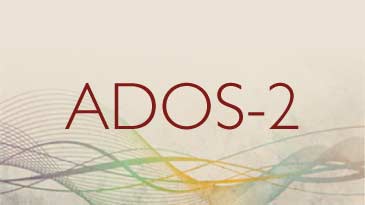 Autism Diagnostic Observation Schedule Second Edition (ADOS 2)
Autism Diagnostic Observation Schedule Second Edition (ADOS 2)
To assess and diagnose Autism Spectrum Disorder.
Like its predecessor, the ADOS-2 is a semi-structured, standardised assessment of communication, social interaction, play, restricted and repetitive behaviours. It presents various activities that elicit behaviours directly related to a diagnosis of ASD. By observing and coding these behaviours, you can obtain information that informs diagnosis, treatment planning and educational placement.
 Leiter International Performance Scale - Third Edition (Leiter-3)
Leiter International Performance Scale - Third Edition (Leiter-3)
Evaluates nonverbal cognitive, attentional and neuropsychological abilities in typical and atypical children, adolescents and adults.
The Leiter-3 evaluates nonverbal cognitive, attentional and neuropsychological abilities and targets typical as well as atypical children, adolescents and adults. Its engaging, nonverbal format makes it ideal for use of individuals with Autism, Speech/Language Disorders, as well those with English as a second language. The Leiter-3 provides an IQ score, as well as percentile and age-equivalent scores for each subtest.
 NUCOG - Neuropsychiatry Unit Cognitive Assessment Tool
NUCOG - Neuropsychiatry Unit Cognitive Assessment Tool
Provides a multidimensional profile of an individual's cognitive status.
Validated in a wide variety of psychiatric, neurologic and general medical populations, NUCOG provides a multidimensional profile of an individual's cognitive status. When integrated with a clinical assessment, this can greatly assist in the diagnosis and management of cognitive disorders and serve as a guide to more in-depth formal neuropsychological testing.
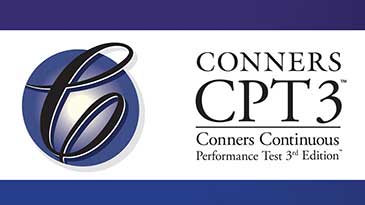 CPT 3 - Conners Continuous Performance Test 3
CPT 3 - Conners Continuous Performance Test 3
Assesses attention-related problems by focusing on four different areas.
The Conners CPT 3 uses a task-orientated computerised system to visually assess attention-related problems in individuals aged 8 years and older. During the 14 minute 360 trial administration, respondents are required to respond when any letter, except "X", appears. By indexing the respondent's performance in areas of attentiveness, impulsivity, sustained attention and vigilance, the Conners CPT 3 can be a useful adjunct to the process of diagnosing Attention-Deficit/Hyperactivity Disorder (ADHD), as well as other psychological and neurological conditions related to attention.
 WPI Career Report
WPI Career Report
Help individuals chart their career paths.
Help individuals chart their career paths. The Career report provides insight into an individual's personality traits, the kinds of work they enjoy, and how they can manage career change. It describes and individual's work style, their approach to solving problems, managing change and dealing with stress. The report provides exercises to help people understand their work strengths and develop a plan for changing careers.
 Career Values Scale
Career Values Scale
The Career Values Scale (CVS) is an up-to-date measure of work values, preferences and needs.
The Career Values Scale (CVS) is an up-to-date measure of work values, preferences and needs. These values are a part of a person's core beliefs and give meaning to the person's career and life. They are a useful indicator of job satisfaction and personal goals.
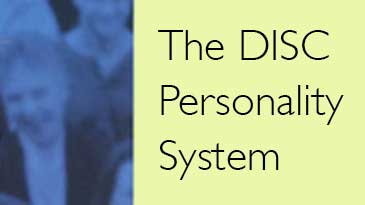 DISC Personality System
DISC Personality System
Research has shown that behavioural characteristics can be grouped together in four key divisions called personality styles.
DISC provides quick, efficient and accurate assessments of personal attributes for personal and team development. D"- Dominant/ Driver or Fast-Paced and Task-Oriented, "I" - Influencing/ Inspiring or Fast-Paced and People-Oriented, "S" - Stable/ Steady or Slower-Paced and People-Oriented, "C" - Compliant/ Correct or Slower-Paced and Task-Oriented
 WPI Development Report
WPI Development Report
Help individuals become more effective.
Help individuals become more effective. This report is designed as a tool for professional growth. It contains interpretive notes that are useful for increasing success at work and in life. The report focuses on personal characteristics and behaviours that influence how individuals perform in work settings, and it contains information about preferences, strengths and techniques for increasing effectiveness.
 WPI Leadership Report
WPI Leadership Report
Help leaders understand their role and maximise their impact.
Help leaders understand their role and maximise their impact. This report sets the stage with an individual's pivotal skills, competencies and areas of difficulty to focus development plans on areas that will lead to the greatest increase in leadership performance. It ends with exercises that bring it all together-helping you create development plans that leverage strenghts and address pressing needs.
 ACER Test of Abstract Reasoning
ACER Test of Abstract Reasoning
To assess abstract reasoning ability.
ACER TAR is a uniquely Australian test of abstract reasoning, with current adult data and online or paper-based administration. It is a relatively language-free assessment, used as a measure of general ability for selection into occupations with a moderate to high demand on reasoning and where the ability to think clearly to solve problems is important.
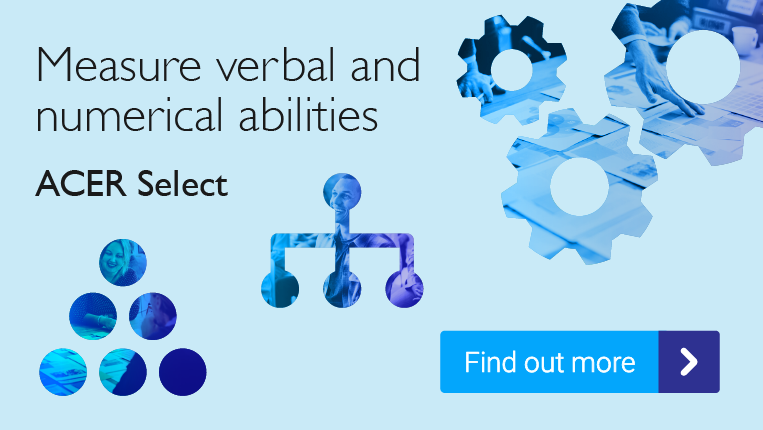 ACER Select
ACER Select
To assess verbal and numerical reasoning.
ACER Select is a quick and easily administered test of verbal and numerical reasoning, suitable for recruitment for a variety of occupations. ACER Select is a major revision of the well-established and bestselling ACER Higher and Advanced Tests.
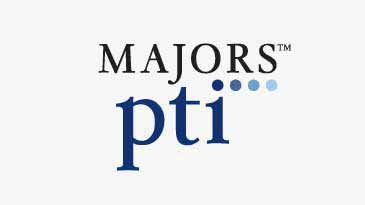 Majors Personality Type Inventory - Majors PTI™
Majors Personality Type Inventory - Majors PTI™
Majors Personality Type Inventory - Majors PTI™
The Majors Personality Type Inventory (MajorsPTI™) was created to take advantage of recent advances in the field of psychometric and theoretical thought about personality type. These advances include using new measurement techniques to create an instrument that more accurately determines one’s personality type.
 Self Directed Search - 2012 Update
Self Directed Search - 2012 Update
To explore career options by matching interests and abilities to occupations.
The Holland theory of career development is currently being used in organisations of all types, primarily because it offers so many practical applications. Chapter topics include specific applications of the Holland theory and the SDS in organisations; employee selection, training, and development.
 Emotional Quotient Inventory 2.0 - EQ-i 2.0
Emotional Quotient Inventory 2.0 - EQ-i 2.0
Delivers a revolutionary new experience that leverages the scientific rigor and predictive capability.
The Emotional Quotient Inventory (EQ-i®) is the first scientifically validated and most widely used Emotional Intelligence assessment in the world. Based on more than 20 years of research worldwide, the EQ-i® examines an individual’s social and emotional strengths and weaknesses.
 Work Personality Index
Work Personality Index
The Work Personality Index assessment is an advanced measure of work personality characteristics.
 ACER Mechanical Reasoning Test Second Edition (MRT-2)
ACER Mechanical Reasoning Test Second Edition (MRT-2)
ACER Mechanical Reasoning Test – Second Edition (MRT-2)
The ACER Mechanical Reasoning Test – Second Edition (MRT-2) assesses mechanical reasoning ability, which entails understanding very basic principles of physics and mechanics, visualising the movement of objects through space, and understanding cause-effect relationships between mechanical components. The MRT-2 is designed to assess aptitude for solving problems requiring the understanding of mechanical ideas. It does not require mechanical knowledge or reading ability.
 TEEM - ACER Test Of Employment Entry Mathematics
TEEM - ACER Test Of Employment Entry Mathematics
To assess work related mathematical ability
The TEEM is a group test of basic, numerical aspects of mathematical ability. The items cover basic mathematical problems of a type that might be encountered in a technical or trade training course or on the job in technical or trade positions.
The items begin with relatively easy numerical problems then progress through more difficult numerical, geometry, visual-spatial and short story problems. The items measure common mathematic skills, including division, percentages, rounding off and fractions. Understanding of mathematical terms is required to complete the test accurately.
The TEEM contains 32 items which are presented in a reusable, multiple choice test booklet with four response alternatives for each item. Reference group data are provided as percentile ranks and stanines, with associated descriptive ratings. T-scores and z-scores are also provided.
The TEEM was designed for use in the selection of personnel who need a facility with basic mathematics to perform the duties of their position. The test can also be used for counselling individuals who work within or aspire to such occupations.
 Sigma Radius 360 Feedback
Sigma Radius 360 Feedback
Provide a well-rounded and accurate picture from multiple perspectives of an employee's performance.
In a 360 feedback process, the supervisor is only one of a group of people providing performance feedback. Feedback can also be provided by peers, subordinates and customers - all of whom are in a position to view differing aspects of the employee's performance. Employee ratings and comments are pulled together in a detailed report that provides scores for each of the 42 dimensions, including breakdowns by rater category, along with helpful development advice. The report can serve as a stand-alone development tool, or can play an important role in a larger employee review or development process.
 SEW - Social-Emotional Wellbeing Survey
SEW - Social-Emotional Wellbeing Survey
SEW - Social-Emotional Wellbeing Survey
The Social-Emotional Wellbeing (SEW) Survey is an anonymous strength-based survey for students aged 3-18 years, which provides an ecological view of students’ wellbeing providing schools with a summary of results across the full survey, and a break-down of results by specific area and individual survey questions.
 Six-Star Survey
Six-Star Survey
The Six-Star Surveys provide a quick and easy-to-use tool for capturing valuable data related to engagement, resilience and communication
Improvements in the wellbeing of staff and students can have noticeable positive effects on engagement, motivation and academic achievement. Higher wellbeing is also associated with decreases in mental, emotional and behavioural concerns. The Six-Star Surveys provide a quick and easy-to-use tool for capturing valuable data related to engagement, resilience and communication – data which can be used to track, and evaluate practices and programs for maintaining positive levels of wellbeing across the entire school.
 Adolescent Coping Scale – Second Edition (ACS-2)
Adolescent Coping Scale – Second Edition (ACS-2)
 Coping Scale for Adults - Second edition
Coping Scale for Adults - Second edition
 Behavior Rating Inventory of Executive Function (BRIEF)
Behavior Rating Inventory of Executive Function (BRIEF)
 Autism Spectrum Rating Scales (ASRS)
Autism Spectrum Rating Scales (ASRS)
 Developmental Profile 3
Developmental Profile 3
 Revised Children’s Manifest Anxiety Scale – Second Edition (RCMAS–2)
Revised Children’s Manifest Anxiety Scale – Second Edition (RCMAS–2)
 Children’s Depression Inventory - Second Edition (CDI-2)
Children’s Depression Inventory - Second Edition (CDI-2)
 Adaptive Behaviour Assessment System - Third Edition (ABAS-3)
Adaptive Behaviour Assessment System - Third Edition (ABAS-3)
 Childhood Autism Rating Scale – Second Edition – CARS–2
Childhood Autism Rating Scale – Second Edition – CARS–2
 Autism Diagnostic Observation Schedule Second Edition (ADOS 2)
Autism Diagnostic Observation Schedule Second Edition (ADOS 2)
 CPT 3 - Conners Continuous Performance Test 3
CPT 3 - Conners Continuous Performance Test 3
 DISC Personality System
DISC Personality System



